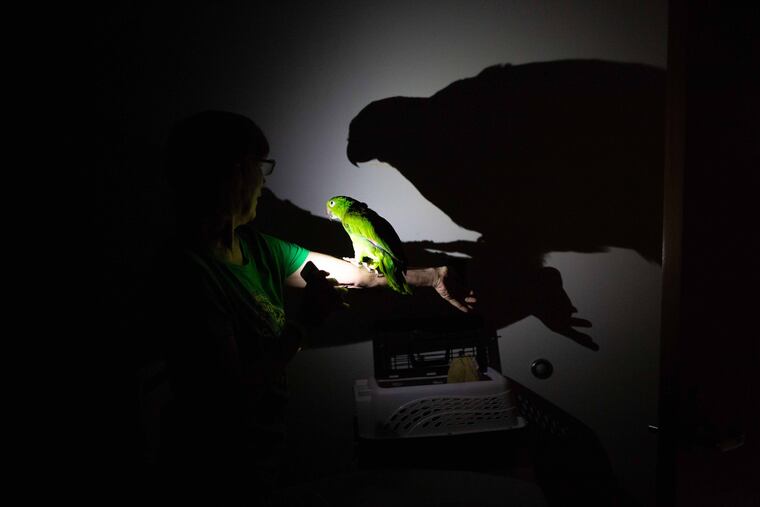Exotic birds need legal protection
We have a chance to give birds the equal protection that other animals covered under the Animal Welfare Act have had for years.

For decades, our most beloved fellow creatures — from dogs and cats to apes, elephants, and dolphins — have been protected by the federal Animal Welfare Act, which sets minimum standards of care for animals used in research, transport, breeding, and the pet trade. Native and migratory birds have separately benefited from a network of laws and regulations.
But parrots and other “exotic birds” — those colorful winged creatures that we marvel at in zoos, and who stare dolefully at us through the bars of cages at pet shops and dilapidated roadside menageries — have never enjoyed legal protection under federal law, despite the fact that Congress mandated such protection over 20 years ago.
For the first time, parrots and other exotic birds are on the verge of being covered by the Animal Welfare Act. As a result of a lawsuit brought by the American Anti-Vivisection Society and the Avian Welfare Coalition, the U.S. Department of Agriculture is under court order to finally enforce the Animal Welfare Act and monitor how birds are treated in the pet trade, exhibits, and entertainment. The exact shape of these regulations is still an open question, though — the final version of the regulations will be published in February 2023.
Dogs in puppy mills are not the only victims of abusive or neglectful breeders. Far less visible but no less cruel are the squalid conditions at many bird-breeding premises. Huge numbers of birds are being bred in dark basements, in backyards or garages, or in large-scale breeding facilities, all to supply the pet trade. Birds are kept in small, barren cages that prevent them from carrying out their most natural behavior: flying.
Contrast this to how birds live in the wild, where they gather together naturally in flocks and can fly miles a day, foraging for food, mating, building nests, and raising their young on their own terms. We seem to have a blind spot when it comes to recognizing this simple truth: confining an intelligent, socially dependent bird to a cage is patently unnatural and inhumane.
Even when bred in captivity, exotic birds are not domesticated animals. They are the native species of other countries, adapted to vastly different environments.
The draft regulations the USDA has already published support some key avian welfare needs: namely, providing psychological enrichment for birds (just as the agency requires for primates); regulating the transport of baby birds too young to eat on their own (just as current regulations do for puppies); and requiring that aquatic birds be provided with water and opportunities to wade.
“Confining an intelligent, socially dependent bird to a cage is patently unnatural and inhumane.”
However, the proposed regulations’ shortcomings are glaring. Still needed are provisions to prevent cruel and unnecessary physical mutilations of birds common in the industry, tethering them for extended periods, surgical devoicing and beak alterations for cosmetic or behavioral reasons, and licensing for pet shops (as is required for other wild animals). Most astonishingly, the provisions do not require that birds be given areas to fly.
Nikki Thompson, chief humane society police officer at the Bucks County SPCA, said regulations can make it easier to enforce animal cruelty laws. “It will give humane law enforcement and shelters a way to define exactly what constitutes basic care and the standards that should be met or exceeded,” Thompson said.
» READ MORE: Birding is for everyone, especially in Philadelphia | Opinion
The current proposed rules are a welcome first step. But when you stop to consider the fundamental truth about birds — that captivity is itself a compromise to their very nature — it’s clear we still have far to go to protect them under the law.
As a nation of animal lovers, we no longer automatically accept the maltreatment of sentient creatures — we work to make life better for them. We have a chance now to give birds the equal protection that all other animals covered under the Animal Welfare Act have had for years. The public comment period ends on May 25.
Denise Kelly is president and cofounder of the Avian Welfare Coalition, which raises awareness of the issues most critical to the welfare, conservation, and overall protection of avian species impacted by the exotic pet trade.